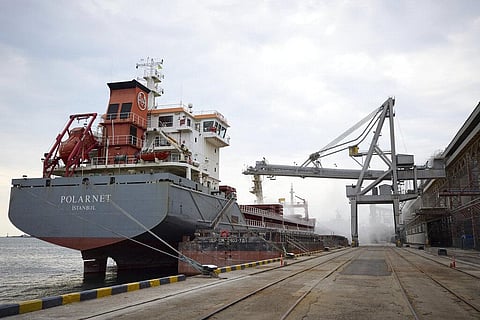

A hunger crisis could be in store for the world next year due to the withdrawal of Russia from a major food grain deal with Ukraine, the impact of the food-grain hoarding by China, the world's largest consumer of rice, warned an analyst.
"The Russia-Ukraine grain deal has collapsed, which could push the world into a ‘Hunger Games’ situation with grain-haves and have-not countries," warned Nitin Awasthi, an analyst at InCred Equities, a Mumbai-based finance firm, in a note to clients on Tuesday.
RUSSO-UKRAINE DEAL
A food crisis, particularly in Africa, was on the horizon after Russia attacked Ukraine early last year. Both Ukraine and Russia are major producers, and exporters, of wheat, and countries such as Egypt, Lebanon, Sudan, Ethiopia, Nigeria, and parts of the Middle East and Asia depend on supplies from these countries to feed their populations.
Not only did the attack disrupt farming in Ukraine, Russia was not even allowing the grain stored in large silos in Ukrainian port cities to be exported. This led to calls by United Nations.
Russia, however, yielded some ground later and allowed three Ukrainian cities to export nearly 32.9 million metric tons of grain and other food to the world after a deal was brokered by United Nations and Turkey.
Now, said Nitin Awasthi, Russia no longer needs to abide by the agreement as the country's oil dynamics has changed. Indeed, the country said on Monday the deal had "de facto ended" after blaming Ukraine for attacking a bridge in Crimea. Russia said that it would consider renewing the deal if its conditions were met.
Awasthi linked Russia's bravado to its assurance about the price of crude oil -- its main source of export revenue -- remaining high.
"As energy prices are no more a threat for Russia, grain politics is back into the limelight," he pointed out."Russia pulled the plug [from the deal] and the crisis is back."
Cereal prices in the world's poorest continent have surged because of the slump in exports, sharpening the impact of conflict and climate change.
TAKING PRE-EMPTIVE ACTION
One country said Awasthi, that seems to be anticipating the crisis is China -- the world's largest consumer of rice.
"China knows the ‘Hunger Games’ may start soon and hence, has started to import whatever grain they can manage without spooking the market," he pointed out in his report.
The country has been reportedly importing rice in large quantities from India which also happens to be the largest producer and exporter of the grain. India’s domestic market has started to feel the heat of China sucking rice stocks out.
WHAT SHOULD INDIA DO?
India, home to a large number of vulnerable people in the world, is traditionally self-sufficient in food grains, but only by so much. Moreover, it depends on imports for some key non-grain items, such as pulses.
The analyst pointed out that India happens to go through elections next year. In such a situation, the Indian government will have to be careful to ensure a sufficient supply of grains in the country to prevent any sharp increase in prices. Hence, said the report, India could soon impose restrictions on the export of rice.
"It's in the interest of the government to use excess rice stock as a diplomatic tool," said the analyst.